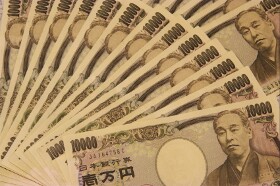The Japanese yen was weak for the most part today despite the better-than-expected inflation print and risk aversion among investors. Meanwhile, Japan’s manufacturing sector unexpectedly continued to contract.
The Statistics Bureau reported that the Japan national core Consumer Price Index rose 0.8% in May from a year ago. While it was a little smaller than the April increase of 0.9%, it was a better reading than a 0.7% gain predicted by analysts.
Meanwhile, the IHS Markit Flash Japan Manufacturing PMI edged down to 49.5 in June from 49.8 in May, meaning that the manufacturing sector was declining with faster pace. Market participants were hoping that the index would improve to at least the neutral 50.0 level of no change. Tim Moore, Associate Director at IHS Markit, commented on the negative reading:
June survey data reveals a further loss of momentum across the manufacturing sector, as signalled by the headline PMI dropping to a three-month low. Softer demand in both domestic and international markets contributed to the sharpest fall in total new orders for three years. A soft patch for automotive demand and subdued client confidence in the wake of US-China trade frictions were often cited by survey respondents.
Some market analysts said that the friction between the United States and Iran should be supporting the Japanese currency due to its role as a safe haven. Yet currently, it does not look to be the case.
USD/JPY rose from 107.29 to 107.49 as of 12:18 GMT today, rebounding from the session low of 107.04. EUR/JPY gained from 121.14 to 121.63. CHF/JPY went up to 109.52 from the open of 109.28 after touching the daily minimum of 109.00
If you have any questions, comments, or opinions regarding the Japanese Yen, feel free to post them using the commentary form below.
